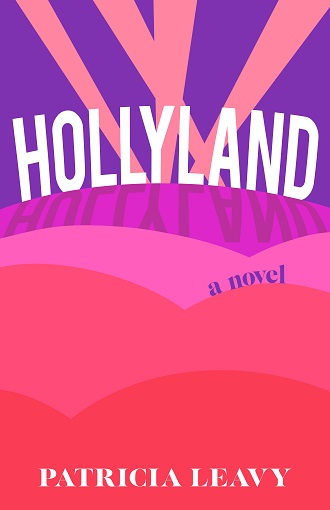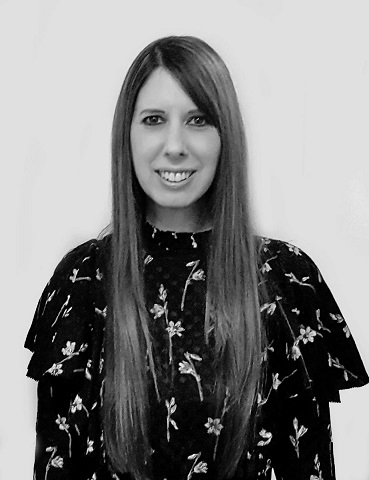I was terrified I’d never see him again. So I wanted to write him something to tell him how much he means to me, you know, that letter you write when you think this is it. A letter wasn’t enough, so I wrote him a novel instead.
Patricia Leavy – 4 April 2023
The Back Flap
What happens when a seemingly ordinary woman with a passion for the arts falls in love with a Hollywood star known for his bachelor status and quick temper with the paparazzi? Something extraordinary.
Dee Schwartz is a writer and arts researcher. Ryder Field is a famous actor descended from Hollywood royalty. On the night they meet outside a bar, their connection is palpable. Ryder’s mother—legendary actress Rebecca Field, half of Hollywood’s golden couple when she died—was kidnapped and murdered by a crazed fan in a shocking event that forever tarnished Tinseltown. Dee’s mother, too, died when she was young. Bonded by this loss, the two embark on a love story that explores their search for magic—or “gold dust”—in their lives. Everything changes, however, when Dee mysteriously disappears after an awards ceremony. Is history repeating itself? Can there truly be a happily ever after in Hollywood?
Set against the backdrop of contemporary Los Angeles, Hollyland is a poignant novel that moves fluidly between romance, humor, suspense, and joy.
About the book
What is the book about?
Hollyland is a celebrity romance between a supposedly average gal, arts researcher Dee Schwartz, and a Hollywood bad boy, actor Ryder Field who comes from an iconic family. On the surface, it’s a sweet and sexy little love story. But it’s really about many things—love after grief, living with passion, the wonder of the arts, our search for magic or “gold dust,” and who the real movie stars are on the big screen of our lives. Above all, it’s about what it really means to live an extraordinary life.
When did you start writing the book?
I wrote this book during the lockdown in 2020. My elderly father, whom I love more than anyone, got a serious case of covid, before the vaccine. He had other health challenges at the time and we all thought we were going to lose him. The pandemic made it even worse, as I did not have the ability to get to him. I was terrified I’d never see him again. So I wanted to write him something to tell him how much he means to me, you know, that letter you write when you think this is it. A letter wasn’t enough, so I wrote him a novel instead.
How long did it take you to write it?
I worked on it day and night and finished a solid draft, that included rounds of revisions, in just a few weeks, rushed it to my copy editor, and overnighted it to my father. He loved it. After that, I continued to revise it. Amazingly, nearly three years later, the novel is being released into the world, and my dad is alive and well.
Where did you get the idea from?
We live in a culture fascinated with celebrity, but because I was thinking about my father, I started to ponder who the real movie stars are on the big screens of our lives. That was the starting point. It brought me to the idea of what would happen if someone totally in love with art in the purest way was surrounded by those in the entertainment industry. How would she see Hollywood—or what she calls, Hollyland? How would she change the way others see art, creativity, passion, and the real magic—or gold dust—in our lives?
Were there any parts of the book where you struggled?
Usually there are, as writing is hard, but in this instance, it just flowed. I think the universe was helping me out so I could finish the book for my father.
What came easily?
Sometimes I can see a character clearly. Other times I can see a character and their story world. When I’m really lucky, I can see all the characters and the story world. But I’m never able to see every scene. The overall plot, yes, but not necessarily how you get from A to B to C and so on. This time, I could see it all.
Are your characters entirely fictitious or have you borrowed from real world people you know?
While there’s a healthy dose of imagination thrown in, Dee is an arts researcher and writer, as am I. I drew on decades of research experience to write the arts narrative woven into the story, most of which is articulated through Dee’s observations. Dee’s father, Lou, was also inspired by my own father. While I took creative liberties, there are many nods to his upbringing, his life today, our relationship, and most importantly, his positive, optimistic approach to life.
We all know how important it is for writers to read. Are there any particular authors that have influenced how you write and, if so, how have they influenced you?
So many. Carolyn Ellis and Laurel Richardson have taught me to be vulnerable and brave in my writing. Meg Donahue has shown me how to write with compassion and give characters depth. Candace Bushnell reminds me to always have fun with it, and balance the tender moments with humor, lightness, and a little irreverence.
Do you have a target reader?
Fans of women’s fiction, romance, and romantic suspense. Beyond that, any reader looking for a light, feel-good read with some food for thought about what it really means to live an extraordinary life.
About Writing
Do you have a writing process? If so can you please describe it?
I get an idea, which could come from anywhere, some personal experience, an observation, something I overhear at a café, a topic I’m interested in, a piece of art, whatever, and then I stew on it until it crystalizes in my mind. Once I can see an entire scene play out in my mind like a film, or sometimes an entire novel, I start writing, or in some cases doing research to enable me to write. While this is generally my process, the truth is, it never really happens exactly the same way twice which is why I’m still so in love with writing.
Do you outline? If so, do you do so extensively or just chapter headings and a couple of sentences?
I outline extensively for nonfiction. With fiction, I fly by the seat of my pants. When I have an idea that I feel is really there—at least part baked—I just start writing. I have written novels chronologically, but more often, I write scenes, out of order, and then stitch them together.
Do you edit as you go or wait until you’ve finished?
I edit as I go, usually dozens of times per chapter or even per scene. I solicit feedback chapter by chapter and edit more. Then when I have a full draft, I edit many more times before it goes to a copyeditor, which always leads to more revisions.
Do you listen to music while you write? If yes, what gets the fingers tapping?
I don’t, but I listen to music just about every waking moment when I’m not writing. I especially love women singer-songwriters. You can learn a lot about structure, using repetition purposefully, developing tone, building emotionality, writing with specificity but also with metaphor and symbolism, and writing from the perspectives of girls and women.
About Publishing
Did you submit your work to Agents?
I have, but decided it was not the right path for me. You never know what the future will hold, but these days I’m happy where I am.
What made you decide to go Indie, whether self-publishing or with an indie publisher? Was it a particular event or a gradual process?
I’ve worked with all different kinds of publishers over the years. I started my career with one of the biggest with a stellar reputation. Let’s just say, it didn’t live up to my fantasies. Since then, I’ve worked with all different kinds of publishers, including other biggies. My best experiences have consistently been with indie presses. It’s more personal, more humanizing. There’s more support for what’s always a bumpy journey. You feel like you’re in it together. I’m glad to be involved in all phases of the process, from production to promotion. I also like having more ownership over my work—after two decades and 40 plus books—that’s become vitally important to me as an artist. The funny thing is, over the course of my career, my most successful books have always been with indie presses. It’s so counter to what people assume.
Did you get your book cover professionally done or did you do it yourself?
It was professionally done. The designer came up with several concepts and I selected what stood out to me, with the input of my publisher. I absolutely love the result.
Do you have a marketing plan for the book or are you just winging it?
I was fortunate to be able to hire a terrific publicity team. I do also have my own marketing plan, which I do for all my books, regardless of the publisher and any outside help.
Any advice that you would like to give to other newbies considering becoming Indie authors?
Learn as much as you can about the process. Understand that you’ll need to wear two hats, as a writer and as an author working in the publishing industry. They’re not the same thing. Writers spend their days in story worlds. It’s very private. Authors negotiate, pitch themselves and their work, deal with critique, and more. It’s very public. Try to find ways to protect the creative side of yourself, while doing what you need to do to be an author. Have fun with it.
About You
Where did you grow up?
Outside of Boston.
Where do you live now?
Maine, not far from the sea.
What would you like readers to know about you?
I had an entirely different career. I wanted to be a writer since I was very little, but was too afraid to pursue it. Instead, I became a professor. Yet writing was my true passion. For years, I pursued it as a side hustle until I finally made the leap more than a decade ago. I’ve never looked back. I share this so others will know, it’s never too late to follow your passions.
What are you working on now?
Another celebrity romance.
End of Interview:
For more from Patricia Leavy visit her website and follow her on Facebook, Instagram, and Twitter.



